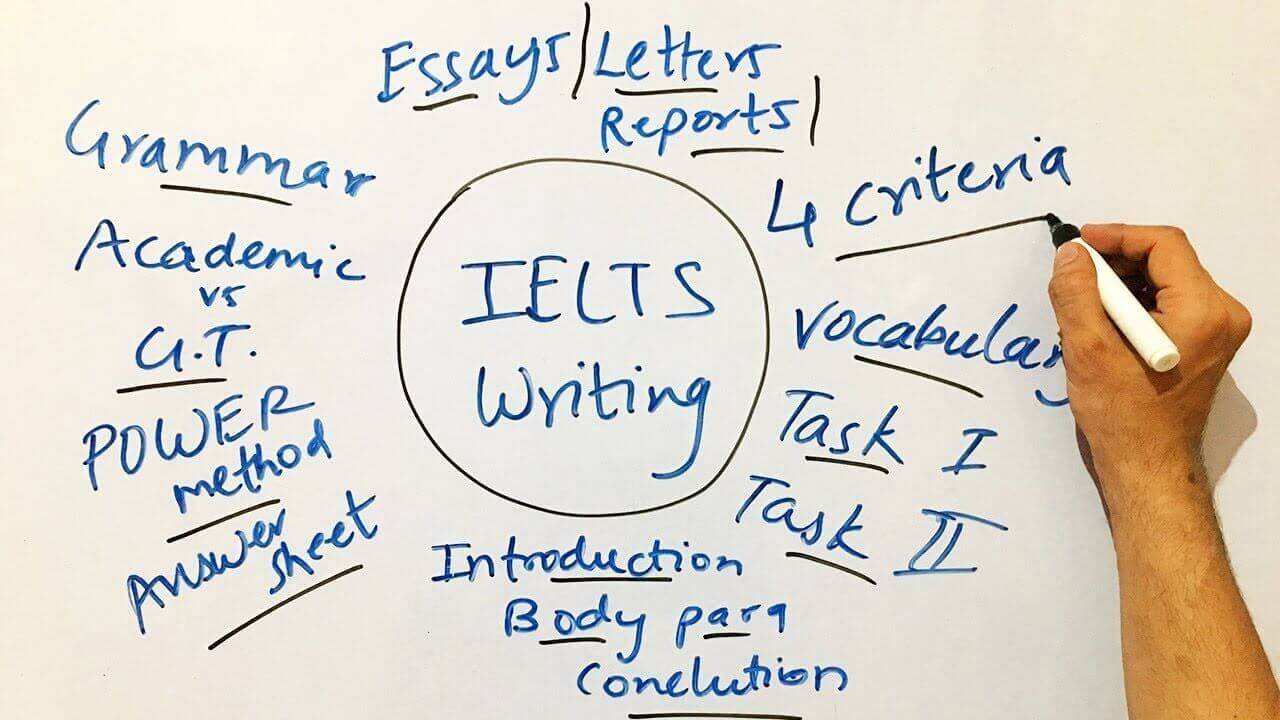Writing Paragraphs
Writing paragraphs I always tell students that the best essay I have ever read was written by a Pre-Intermediate student. ‘How is that possible?’...
Flexible group courses for everyday communication and fluency.
Academic EnglishPrepare for university study with advanced academic language skills.
Business EnglishEnglish for professional communication in corporate and workplace settings.
Private LessonsOne-to-one lessons tailored to your goals, schedule and interests.
Language ExcursionsLearn English while exploring Cape Town with your teacher as your guide.
Get the score you need with targeted strategies and expert support.
Cambridge ExamsPrepare for the FCE or CAE with structured, high-quality training.
TOEFL PreparationBuild confidence and test skills to succeed in the TOEFL exam.
Personalised one-to-one English lessons delivered online, on your schedule.
Corporate GroupsLive online training for teams, customised to your organisation’s needs.
English for Tech ProfessionalsSelf-paced English course designed for developers, engineers, and IT teams.
Qualify to teach English in South Africa or abroad with this practical course.
Blended Certificate in TEFLCombine online study with hands-on classroom experience in Cape Town.
Learn in a historic university campus right in the city centre.
Tours and ActivitiesExplore Cape Town and make friends through weekly excursions.
Social ProgrammeJoin our schedule of fun events, outings and conversations.
Getting AroundTips and tools for navigating the city like a local.
Social and DigitalStay connected online and through our vibrant student community.
A friendly, sociable student house just a short walk from school.
Adderley StudiosModern, secure apartments in the heart of Cape Town.
HomestayLive with a local family and experience South African culture.
Hotels & AparthotelsIndependent options for comfort, privacy and flexibility.
All tuition and accommodation fees in one clear table.
Booking InformationWhat to expect before, during and after you book.
Instalment PlansFlexible payment options for long-term bookings.
User LoginView your bookings, make payments, and manage your details.
Visa options and support for international students coming to South Africa.
Insurance & TravelWhat you need to know about travel, insurance and staying safe.
MyELC AppAccess your timetable, progress and more on the student app.
Arrival and OrientationHow we help you settle in on your first day in Cape Town.
How to request certificates, transcripts, or proof of enrolment.
Terms & ConditionsThe small print — bookings, cancellations, and more.
Contact UsGet in touch with the ELC team by email, phone or WhatsApp.
Privacy PolicyHow we protect your data and respect your privacy.
What makes ELC and UCT a great place to learn English.
About the University of Cape TownSouth Africa’s leading university and home to the ELC.
About the English Language CentreWho we are, what we offer, and how we teach.
Our TeamMeet the teachers, support staff and leadership team behind ELC.
Our international quality standards and endorsements.
Media & PressNews coverage, interviews and media mentions of ELC.
TestimonialsWhat our students, partners and teachers say about us.
BlogUpdates, stories and insights from the ELC community.
Flexible group courses for everyday communication and fluency.
Prepare for university study with advanced academic language skills.
English for professional communication in corporate and workplace settings.
One-to-one lessons tailored to your goals, schedule and interests.
Learn English while exploring Cape Town with your teacher as your guide.
Get the score you need with targeted strategies and expert support.
Prepare for the FCE or CAE with structured, high-quality training.
Build confidence and test skills to succeed in the TOEFL exam.
Personalised one-to-one English lessons delivered online, on your schedule.
Live online training for teams, customised to your organisation’s needs.
English for Tech Professionals
Self-paced English course designed for developers, engineers, and IT teams.
Qualify to teach English in South Africa or abroad with this practical course.
Combine online study with hands-on classroom experience in Cape Town.
Learn in a historic university campus right in the city centre.
Explore Cape Town and make friends through weekly excursions.
Join our schedule of fun events, outings and conversations.
Tips and tools for navigating the city like a local.
Stay connected online and through our vibrant student community.
A friendly, sociable student house just a short walk from school.
Modern, secure apartments in the heart of Cape Town.
Live with a local family and experience South African culture.
Independent options for comfort, privacy and flexibility.
Use our Course Wizard to match your goals and level to the best option
Course WizardAll tuition and accommodation fees in one clear table.
What to expect before, during and after you book.
Flexible payment options for long-term bookings.
View your bookings, make payments, and manage your details.
Visa options and support for international students coming to South Africa.
What you need to know about travel, insurance and staying safe.
Access your timetable, progress and more on the student app.
How we help you settle in on your first day in Cape Town.
How to request certificates, transcripts, or proof of enrolment.
The small print — bookings, cancellations, and more.
Get in touch with the ELC team by email, phone or WhatsApp.
How we protect your data and respect your privacy.
What makes ELC and UCT a great place to learn English.
About the University of Cape Town
South Africa’s leading university and home to the ELC.
About the English Language Centre
Who we are, what we offer, and how we teach.
Meet the teachers, support staff and leadership team behind ELC.
Our international quality standards and endorsements.
News coverage, interviews and media mentions of ELC.
What our students, partners and teachers say about us.
Updates, stories and insights from the ELC community.

Have you ever been to a new country where you couldn’t understand the road signs? Perhaps you were somewhere remote with no road signs at all (or no road). It’s not fun getting lost. The same goes for the reader navigating a piece of writing with poorly written topic sentences – the road signs of an essay. They guide the reader, helping them understand the direction of each paragraph.
Can you spot the issue with the topic sentence below in an essay about global food consumption? You may have to look hard to even find the topic sentence itself…
Problem: The topic sentence – the last line – comes too late in the paragraph.
Solution: The topic sentence needn’t always be the opening sentence. However, if you are offering examples, as in the above, it’s advisable to start with the topic of the paragraph, followed by supporting examples, research, statistics, or case studies. Here’s a better version:
There is broad agreement among environmentalists that the meat industry is a major contributor to environmental degradation. For example, raising livestock requires large quantities of feed and this puts strain on natural resources. in addition, the decomposition of livestock manure releases carbon dioxide which contributes to climate change.
.jpg?width=1348&height=1536&name=Blog%20infographics%20(1).jpg)
Let’s examine the sentences below (from University of Houston-Victoria). Select which sentence is more focused, and therefore effective.
Problem: The first topic sentence is vague, because it’s not clear what the paragraph is going to be about. Technology could be affecting learning in a million ways. On the other hand, the second topic sentence is much clearer.
Solution: Think of your topic sentence as a mini thesis which states the goal of the paragraph. The second sentence clarifies the writer’s point of view and so the direction of the paragraph is evident. Then, the writer supports the topic sentence with specific examples and explanations. This helps the reader know what to expect and where the paragraph is heading.
Here are more examples of making the topic of the sentence clearer.
A topic sentence should also have a “controlling idea” that gives focus and guides the supporting sentences in the rest of the paragraph.
So, to summarise, a topic sentence should consist of two elements.

Problem: The supporting sentences are unrelated to the specific focus in the controlling idea. Check the example, although the topic is somewhat related, the examples are not relevant.
Chocolate is not only delicious; it also has physiological effects. Junk food in general can be consumed as a comfort food. Even though we know chips, chocolate, and sweets are unhealthy, they can give us a temporary lift when we feel depressed or bored.
The reader never finds out about what the physiological effects of chocolate are as promised. In addition, suddenly the writer starts talking not just about chocolate but everything else, and therefore the paragraph loses direction.
Solution: The controlling idea should inform the specific supporting sentences that follow as per the below example.
Chocolate is not only delicious; it also has physiological effects. Chocolate releases endorphins, which are feel-good chemicals. It also contains caffeine, which provides us with energy. In addition, real dark chocolate contains a cannabinoid, which can provide a hypnotic effect when consumed in significant quantities.
Therefore, the two parts of the topic sentence are necessary. Firstly, the topic (in this case chocolate). Secondly, the controlling idea (in this case the physiological effects) which set the parameters and limit the scope of the paragraph.
The controlling idea can control the supporting sentences and unify the paragraph by setting limitations. For instance:
When preparing a research report, you must complete three sections. Here “research report” is the topic, while “three sections” is the controlling idea. The reader can then predict that the paragraph will describe these three sections.
Phew! After travelling tricky highways with our new-and-improved Google Map, we have arrived safely. The full essay contains many paragraphs, each with a clear topic sentence, which help the reader navigate the essay.
By Leigh-Anne Hunter
Check our other blogs about academic writing Writing Paragraphs, and Stronger Topic Sentences.

Writing paragraphs I always tell students that the best essay I have ever read was written by a Pre-Intermediate student. ‘How is that possible?’...

Intro to the IELTS Writing Paper Like the rest of the exam, the IELTS academic writing paper takes some the skills and competencies required for...

Intro to the IELTS Reading Paper It sometimes feels like the people who set the reading paper of the IELTS exam have deliberately decided to set...